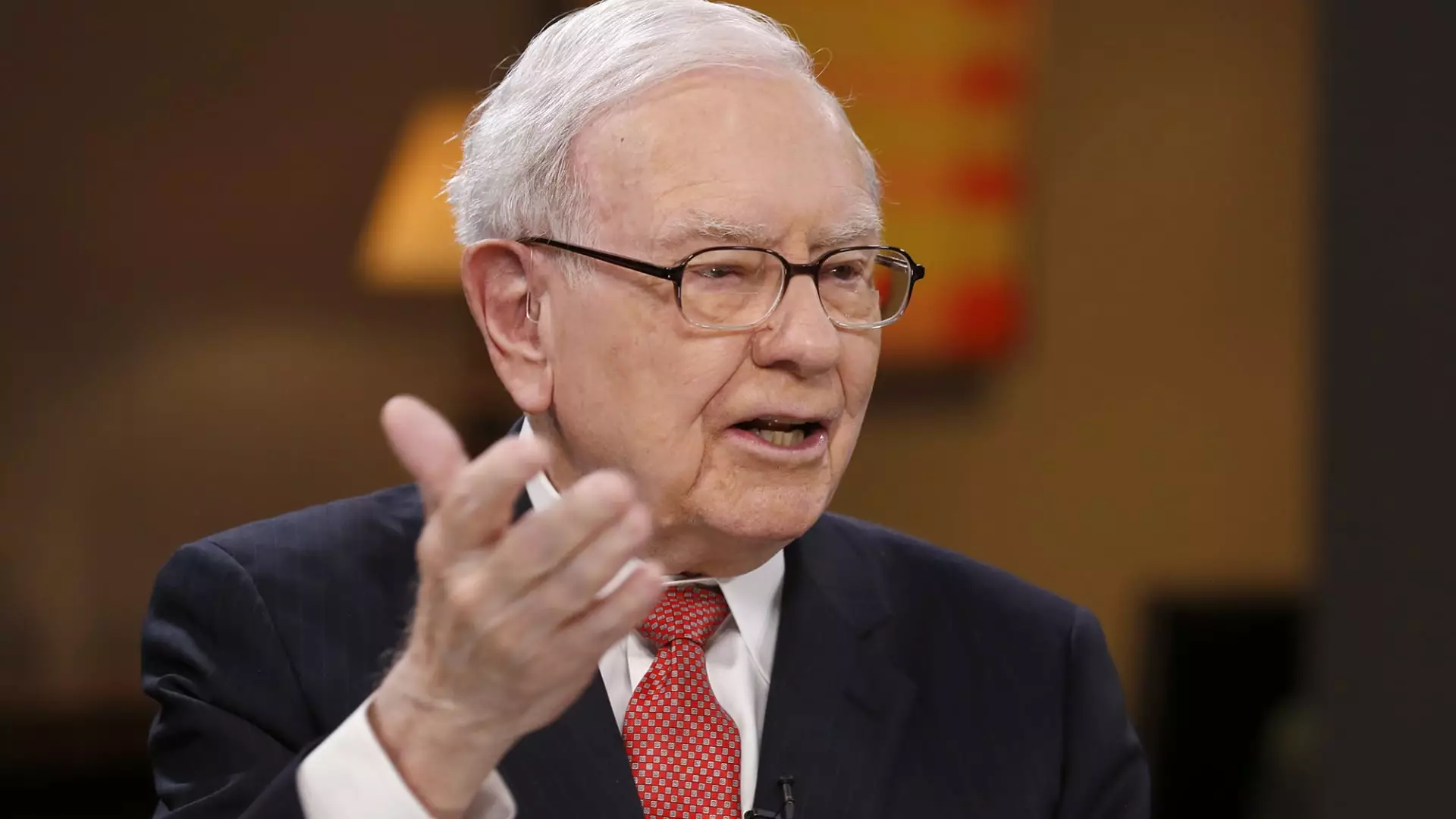Berkshire Hathaway, the powerhouse conglomerate led by the legendary Warren Buffett, has long been perceived as a bellwether for market sentiment. Recent actions by its top executives, particularly Ajit Jain, have raised eyebrows and prompted speculation about the future trajectory of the company and the broader market. With Jain’s notable reduction of his stake in Berkshire, along with Buffett’s own shifts in holdings, it seems that the tides may be turning for this iconic investment firm.
Ajit Jain, who has been at the helm of Berkshire Hathaway’s insurance operations for nearly four decades, made headlines by selling off more than $139 million of his Berkshire stock—his largest sale since joining the firm in 1986. This decision, coming shortly after Berkshire’s Class A shares breached the $700,000 mark and the company achieved a remarkable milestone of over $1 trillion in market capitalization, has raised questions. Market analysts interpret this move as a possible signal that Berkshire’s stock may now be overvalued, especially after a substantial rally in 2024, where it outperformed the S&P 500.
Steve Check of Check Capital Management remarked, “I think Ajit sold because the stock was fully pricing the business,” suggesting that Jain’s actions are indicative of a prudent approach amidst growing optimism. While Jai’s divestiture could be viewed as a personal financial strategy, it nonetheless invites speculation about the company’s future and valuation perceptions amidst a changing economic landscape.
Berkshire’s Buyback Strategy: A Shift in Narrative?
Buffett’s approach to stock buybacks has also attracted scrutiny. Historically, Buffett has been known to repurchase shares only when he views them as undervalued. However, the recent drop in buyback activity—from a striking $2 billion in previous quarters down to just $345 million—hints at a possible reassessment of Berkshire’s intrinsic value. Buffett himself noted in his annual letter to shareholders that, due to the company’s size, he expects it to only slightly outperform the average American corporation, evoking a more conservative outlook that diverges from his typically optimistic demeanor.
This reduction in buyback activity might suggest that Buffett shares Jain’s perception of a valuation plateau and is cautious about committing large amounts of capital at potentially inflated prices. This nuanced understanding of the market’s dynamics reinforces the idea that even seasoned investors like Buffett see value in maintaining a level of restraint in their investment strategies.
Another aspect fueling the speculation about Berkshire Hathaway’s market outlook is Buffett’s systematic reduction of stakes in significant holdings such as Bank of America and Apple. Over $7 billion have been divested in Bank of America alone since mid-July, along with a staggering $75 billion in equities sold in the second quarter of 2024. Such large-scale selling can often be interpreted as a signal of impending caution toward market valuations.
While it’s plausible to assume that Buffett’s selling spree may be part of a sound portfolio management strategy, perhaps motivated by tax savings, the sheer magnitude of the divestments raises red flags. The sustained selling over seven consecutive quarters suggests a mindful approach to capital allocation, which aligns with broader economic concerns about overvaluation and potential market corrections.
The Broader Implications for Investors
For investors, the actions of Berkshire Hathaway’s executives signal a complex interplay of caution and strategy in a rapidly evolving market. While Berkshire’s impressive performance thus far this year may tempt optimism, the executives’ recent decisions prompt a serious reassessment of risk tolerance. The combination of Jain’s significant stake reduction alongside Buffett’s notable selling actions may reflect a sentiment that prevailing stock valuations—particularly for blue-chip companies—could be perceived as unsustainable.
As market dynamics continue to shift, investors would do well to introspectively evaluate not only external market indicators but also the actions of industry titans like those at Berkshire Hathaway. Understanding the motivations behind these strategic decisions could offer valuable insights into navigating an increasingly unpredictable market landscape, one where even the most esteemed investors may approach with heightened vigilance.

